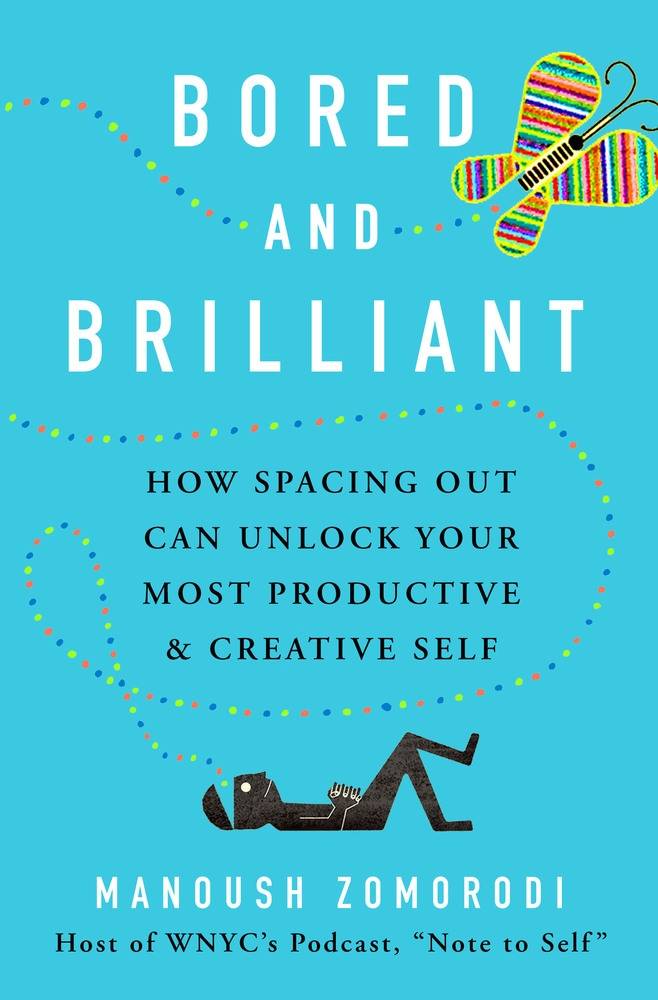Pay attention!
Bet you heard that plenty when you were younger. Look up here, listen to me, watch this, eyes forward. Eventually, it sunk in: you kept your eyes open, your mouth closed, and you are the better person for it… aren’t you? Peep this, pay attention – or, as in the new book “Bored and Brilliant” by Manoush Zomorodi (c.2017, St. Martin’s Press, $26.99, 208 pages), never mind.
A decade ago, as a new mother with a colicky baby, Manoush Zomorodi spent countless zombified hours pushing a stroller around her New York neighborhood, to calm her son. At first, it was one of the most boring tasks she could imagine – but after awhile, she began to notice things: birds, architecture, people, and ideas.
Weeks after returning to work, she was fuzzy-headed. That was when she understood that time off solved problems and cleared her mind; taking “a moment to reflect,” she realized that “my main accomplice was my phone.” That led to a bold experiment: Zomorodi, a radio show host, asked her listeners to join a “Bored and Brilliant Project,” in which they would agree to give up (or at least cut back on) mobile device usage.
Thousands of listeners signed on.
Boredom, she says, is the “second most commonly suppressed emotion after anger…” even though humans need to be bored. Our brains require a certain amount of wandering to stay at peak efficiency. When we are “daydreaming” – something teens and children are more prone to doing – it activates a “default mode,” which enhances problem-solving and creativity. Says Zomorodi, “… without distraction, your mind goes into some interesting and unexpected places.”
Though it may sound funny, there are things you can do to combat a lack of boredom. Keep track of your digital habits; you’ll be surprised how much you’re on your phone. Put your device away while you’re walking, so you’re not tempted to use it on the fly. Stop taking photos for one day. “Delete That App” you can’t live without (because, guess what? You can!). Be unconnected now and then, people-watch, look around, visit a park without your device. And finally, remember that if electronic devices are doing this to you, think about what they’re doing to your kids…
How many times in your life did you bug your mother with whines of boredom? You’ll take them all back, once you’ve read “Bored and Brilliant.”
If you’ve ever had a love-hate relationship with your overly-connected world, this is the book for you. Author Manoush Zomorodi knows your pain — it was a process for her and her Note to Self listeners to disconnect — and because she went through the same kind of withdrawl, she doesn’t promise that it’ll be easy for you, either. The stats are good here, and the tiny-step encouragement is better but it’s the honesty that’s best inside this book. The “Seven-Step Program” is also a big help.
Beware that there’s plenty of irony in reading this book on a device, but read it you should. In our heavily-connected society, “Bored and Brilliant” needs your attention.
The Bookworm is Terri Schlichenmeyer. Email her at bookwormsez@yahoo.com.

